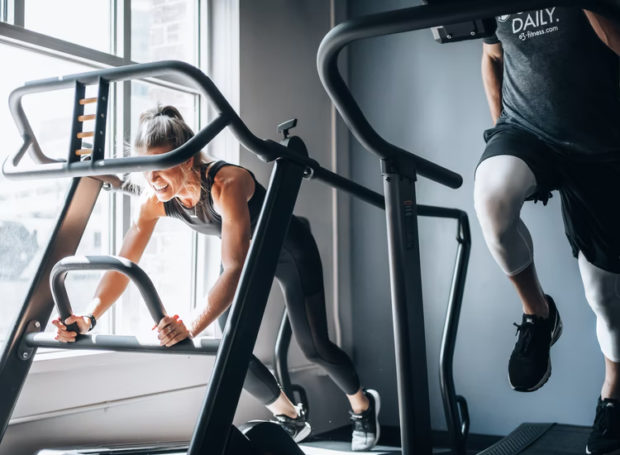
Exercise can reduce students’ desire to drink alcohol – new research
PTI, Oct 31, 2021, 1:09 PM IST

Source: unsplash
Loughborough: Alcohol intoxication, particularly in western cultures, is increasingly regarded as socially acceptable behavior, and excessive levels of alcohol consumption have been identified as a significant problem among university students. One study found that 45-69% of UK students engage in weekly binge drinking sessions.
Now our research has shown that students who exercise are less likely to crave alcohol and can feel more positive.
To investigate the possible reduction of alcohol abuse in students, we found 60 students aged 18-25 who were classified as hazardous, harmful, and addictive drinkers using an alcohol screening questionnaire developed by the World Health Organisation.
We asked the students questions about their drinking habits, got them to talk about their favorite drinks, and then showed them an introductory bar and cocktail video to increase their alcohol craving. We used a questionnaire to measure if this had been successful in increasing cravings. Results showed it was.
After devising a five-minute exercise routine consisting of squats, mountain climbers, push-ups, jumping jacks, heel kicks, and sit-ups, we asked students to watch a video and complete a cravings questionnaire, then we asked them to perform each exercise for 45 seconds, in a circuit-like formation.
There were also two control groups – an active one and a passive one. The active group colored in a picture book for five minutes. The passive group, true to its name, did nothing.
Following the three group sessions, all students answered questions about their drinking, alcohol craving, mood, and anxiety.
Analysis showed that those in the exercise group had significantly lower alcohol cravings when compared with those in both control groups, as well as a more positive mood and lower anxiety. This shows that as little as five minutes of exercise could have a positive effect on your craving to drink, reducing your intake and improving your overall health.
Students who were asked to do coloring as a distraction technique also felt happier, reporting increased mood and an anxiety reduction. Previous research has shown that doing art reduces stress and anxiety levels. However, craving for alcohol was not affected by coloring as a distraction.
During the pandemic, young people – especially students – were unable to get out and meet their friends, and for some their mental health suffered. This may have been exacerbated by a reported rise in drinking, often used as a form of self-medication or as a coping mechanism.
Binge drinking and extreme intoxication in students are associated with problem drinking in later life. This can lead to chronic disabling diseases, such as cancer, heart disease, dementia, and diabetes, not to mention the many associated mental health problems. In young people, it has been associated with increases in risk-taking and aggressive behavior. In addition, frequent drinking is linked with academic problems such as lower subject interest, skipping lectures, and lower reported grades.
Why does exercise reduce craving? Craving is widely considered to contribute to alcohol misuse. It is a strong desire or compulsion to drink or have intense thoughts about alcohol.
Craving can be easily triggered by certain cues, for example, being at a party or restaurant, and we are often not aware of this. Cravings underlie most addictive behaviors, from binge eating to using heroin.
Research has shown in the past that by reducing anxiety and boosting positive moods, the craving for alcohol can be reduced.
Growing evidence suggests that exercising may create feelings of euphoria and improve mood. This may be related to higher levels of happy substances in the brain (called neurotransmitters) such as dopamine, serotonin, and endorphins. These substances make us feel good in the same way that alcohol does.
So exercise may take the place of drinking alcohol to a substantial extent, and decrease craving. Similar results to our work have been found in other studies.
So, the next time you crave a beer, you might try to fit in a short exercise circuit first.
Udayavani is now on Telegram. Click here to join our channel and stay updated with the latest news.
Top News

Related Articles More
People single all their lives might have low life satisfaction: Study

Drinking tea, coffee linked to lower risk of head and neck cancer: Study

Study shows how brain chemicals control eating, could help develop improved obesity drugs

‘Faster walkers’ had significantly lower risk of diabetes, hypertension: Study

World Meditation Day 2024: Celebrating inner peace and well-being
MUST WATCH
Latest Additions

Beware of robbery on Bengaluru-Mysuru Highway: “Egg gang” raises its head

Kejriwal rubbishes LG inquiry in Mahila Samman Yojana, says BJP afraid of defeat

Nitish Reddy: The story of sacrifices made by a middle class family

Denial of permission for fireworks display in Thrissur temples sparks row

Bantwal: Teachers must make literature appealing to children, says Muliya Shankar Bhat
Thanks for visiting Udayavani
You seem to have an Ad Blocker on.
To continue reading, please turn it off or whitelist Udayavani.






















